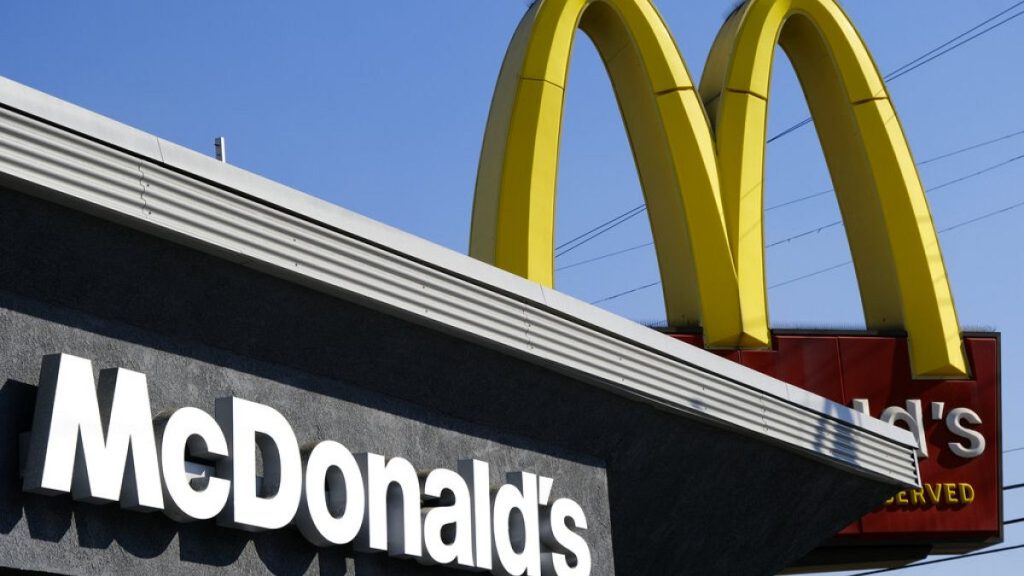The Persistence of Harassment Allegations at McDonald’s UK: A Deep Dive into Workplace Culture Concerns
McDonald’s UK finds itself embroiled in a renewed crisis concerning allegations of widespread workplace harassment, ranging from sexual abuse and assault to bullying and racism. These allegations, resurfaced by a BBC investigation, paint a disturbing picture of a potentially toxic work environment, despite previous commitments by the company to address such issues. The sheer volume of complaints, including hundreds of new cases reported to the UK’s equality watchdog, raises serious questions about the effectiveness of McDonald’s efforts to reform its workplace culture. CEO Alistair Macrow, while condemning the allegations as "abhorrent and unacceptable," insists they are not widespread. However, the sheer number of reported incidents, coupled with the consistency of the claims across different locations, suggests a systemic problem that requires a more robust and comprehensive response.
The allegations themselves are deeply troubling. Young workers describe a climate of fear, where managers allegedly engage in inappropriate touching and sexual harassment. Employees report feeling pressured to tolerate such behavior, with complaints often dismissed or minimized. One particularly distressing account involves a young worker who quit her job after enduring persistent harassment from both managers and customers, only to be told by her superiors to "suck it up." These accounts not only highlight the alleged harassment itself but also point to a potential failure of internal reporting mechanisms and a lack of adequate support for victims. The persistence of these issues, despite McDonald’s previous pledges to improve its workplace environment, suggests that the company’s efforts may have been insufficient or inadequately implemented.
The legal and reputational ramifications for McDonald’s are significant. A prominent UK law firm, Leigh Day, has announced legal action on behalf of hundreds of current and former employees, with claims implicating over 450 restaurants. This legal challenge, coupled with the ongoing investigation by the equality watchdog, could result in substantial financial penalties and further damage to McDonald’s brand image. The public scrutiny generated by these allegations is likely to impact consumer perception and potentially affect the company’s bottom line. McDonald’s must demonstrate a genuine commitment to addressing these issues to regain public trust and avoid further legal and financial repercussions.
A key point of contention revolves around McDonald’s extensive use of zero-hour contracts. Critics argue that this employment model creates a power imbalance, making employees vulnerable to exploitation and less likely to report harassment for fear of losing their jobs. Macrow, however, dismisses this connection, asserting that employees choose to work under zero-hour contracts and that this practice has no bearing on sexual harassment. This stance, however, fails to address the inherent vulnerability of workers in precarious employment situations. The lack of guaranteed hours and the constant threat of job loss can create an environment where employees feel pressured to accept unacceptable behavior. A thorough and impartial investigation into the potential link between zero-hour contracts and the prevalence of harassment is crucial to understanding and addressing the root causes of this issue.
This is not the first time McDonald’s has faced accusations of fostering a toxic workplace culture. In 2021, workers in the United States staged strikes to protest the company’s handling of sexual harassment claims, indicating that these issues are not confined to the UK. The recurring nature of these allegations across different countries suggests a deeper, systemic problem within the company’s structure and culture. A comprehensive review of McDonald’s global workplace practices, including its policies on harassment, reporting mechanisms, and employee training, is essential to prevent future incidents and create a safe and respectful environment for all workers.
Moving forward, McDonald’s UK must take decisive action to address these persistent allegations. This requires a multi-pronged approach that goes beyond mere pronouncements of condemnation. A truly effective response must include strengthening internal reporting mechanisms, providing robust support for victims, conducting thorough and impartial investigations into all allegations, implementing comprehensive training programs for all employees, and reviewing its employment practices, including the use of zero-hour contracts, to address any potential power imbalances. Furthermore, fostering a culture of accountability, where perpetrators of harassment face real consequences for their actions, is essential to creating a safe and respectful workplace. Only through such comprehensive and sustained efforts can McDonald’s hope to rebuild trust and ensure that its workplaces are free from harassment and discrimination.














